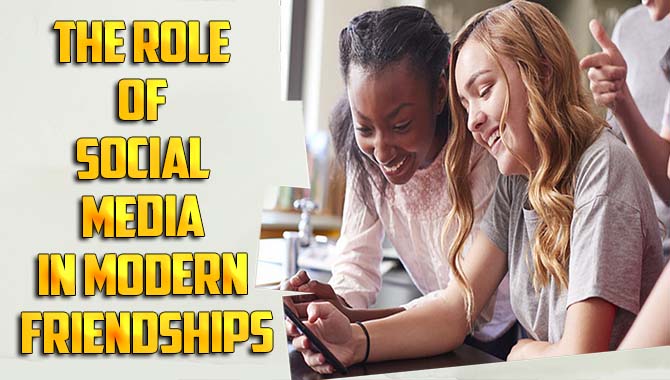Quick Summary: To find success using the best dating tips psychology, focus on building genuine connection, understanding mutual attraction cues, and communicating openly. Learn actionable strategies to boost confidence and foster meaningful relationships effectively.
Best Dating Tips Psychology: Proven Strategies
Dating can sometimes feel like a confusing puzzle, right? You meet someone, you feel a spark, but then what? How do you navigate the early stages to build something real? Many of us wonder if there’s a secret sauce or a hidden map to successful dating. It’s totally normal to feel a bit unsure. The good news is, a little understanding of psychology can make a big difference. We’ll explore simple, proven strategies to boost your confidence and help you connect with others in a way that feels natural and rewarding. Ready to unlock some dating success?
The Foundation: Understanding Attraction from a Psychological Angle
Before diving into specific tips, let’s touch upon what makes people feel attracted to each other. Psychology offers fascinating insights into this. It’s not just about looks; it’s about a complex interplay of factors.
Proximity and Familiarity
We tend to like people we see often. This is the “mere exposure effect.” The more you’re around someone in casual, positive settings, the more likely you are to develop feelings. This doesn’t mean stalking is a good idea! It simply highlights how comfort and familiarity breed liking.
Similarity and Shared Values
People are drawn to those who are like them. Sharing similar interests, backgrounds, or values creates a sense of connection and understanding. It feels good to know someone “gets” you. This doesn’t mean you have to be identical, but finding common ground is key.
Reciprocity of Liking
This is a powerful one: we like people who like us back. When someone shows genuine interest in you, it’s only natural to feel a pull towards them. This is why being open, approachable, and showing interest (without being overbearing) is so effective.
Physical Attractiveness
While not the only factor, physical attraction plays a role. However, what’s considered attractive can also be influenced by cultural norms and personal preferences. Beyond initial looks, traits like confidence, kindness, and a good sense of humor often enhance attractiveness over time.
Step-by-Step: Proven Dating Strategies for Connection
Now, let’s put these psychological principles into action with practical dating tips that actually work.
Step 1: Boost Your Confidence (The ‘Attractiveness’ Halo)
Confidence is incredibly attractive because it signals self-worth and stability. It’s not about being arrogant; it’s about being comfortable in your own skin.
- Focus on Self-Improvement: Engage in hobbies, exercise, learn new skills. When you feel good about yourself, it shows.
- Positive Self-Talk: Challenge negative thoughts about yourself. Remind yourself of your strengths and positive qualities.
- Dress the Part: Wear clothes that make you feel good and confident. Small details can make a big difference in how you perceive yourself.
When you approach dating with a confident mindset, you present a more appealing version of yourself, which is a key psychological driver of attraction.
Step 2: Master the Art of Conversation
Dating is largely about communication. Engaging conversations allow you to build rapport and discover mutual interests.
- Be Genuinely Curious: Ask open-ended questions (starting with “What,” “How,” “Why,” “Tell me about…”). Listen actively to the answers.
- Share About Yourself: Conversation is a two-way street. Don’t just interrogate; share your own thoughts, experiences, and feelings to build reciprocity.
- Find Common Ground: Look for shared interests or experiences. This solidifies the “similarity” principle.
- Use Humor Appropriately: A shared laugh can create an instant bond. Keep it light and inclusive.
Research from institutions like the American Psychological Association highlights the importance of active listening for building strong relationships. It shows respect and genuine interest.
Step 3: Understand and Utilize First Impressions
The first few minutes of meeting someone are crucial. Psychology suggests that people form judgments quickly.
- Make Eye Contact: This conveys confidence and interest.
- Offer a Warm Smile: A genuine smile is inviting and makes you appear approachable.
- Use Positive Body Language: Open posture, leaning in slightly, and nodding can signal engagement.
These non-verbal cues are powerful psychological signals that can set a positive tone for the entire interaction.
Step 4: Be Authentic and Genuine
While it’s good to present your best self, trying to be someone you’re not is unsustainable and unattractive in the long run. Authenticity fosters trust.
- Show Your True Personality: Don’t hide your quirks or unique interests.
- Communicate Your Values: Be open about what’s important to you.
- Avoid Game-Playing: Honesty and straightforwardness are more effective than manipulation.
Psychologically, authenticity builds a stronger foundation for a relationship because it allows for genuine connection and avoids the stress of maintaining a false persona.
Step 5: Learn to Read Signals (Subtle Cues)
Understanding basic body language and verbal cues can help you gauge interest and comfort levels.
- Positive Signals: Prolonged eye contact, mirroring your posture, smiling, leaning in, enthusiastic responses.
- Cautious Signals: Avoiding eye contact, closed-off body language (crossed arms), minimal responses, looking away frequently.
Pay attention to these signals, but also remember that misinterpretation is possible. If in doubt, a gentle, direct question can clear things up.
Step 6: Plan Engaging Dates
The environment and activities of your dates significantly impact the experience.
- Choose Interactive Activities: Mini-golf, cooking classes, or visiting a museum allow for natural conversation and shared experiences.
- Opt for Low-Pressure Settings: Coffee dates or casual walks are great for initial meetings, allowing easy conversation without the pressure of a formal dinner.
- Introduce Novelty: Trying something new together creates shared memories and can heighten attraction, according to studies on excitement and attraction.
A well-planned date shows thoughtfulness and creates opportunities for connection.
Step 7: Embrace Vulnerability (Shared Experience)
Vulnerability is about sharing your authentic self, including your fears and insecurities. While it can be scary, it’s a powerful tool for building intimacy.
- Share Personal Anecdotes: Talk about your experiences and feelings, not just facts.
- Be Willing to Be Uncomfortable: Sometimes, the deepest connections come from navigating difficult conversations or emotions together.
- Reciprocate Vulnerability: When someone opens up to you, treat it with care and consider sharing something of your own in return.
This doesn’t mean oversharing on the first date. It’s about gradually allowing yourself to be seen. As Brené Brown’s research suggests, vulnerability is the birthplace of connection.
Step 8: Manage Rejection and Setbacks
Not every date will lead to a relationship. Experiencing rejection is a normal part of dating. How you handle it says a lot.
- Don’t Personalize It: Often, rejection is about compatibility, not a reflection of your worth.
- Learn from the Experience: What could you have done differently? Was there a mismatch in expectations?
- Focus on What You Can Control: Your attitude, your effort, and your self-care are within your power.
Learning to bounce back resiliently is a key psychological skill that will serve you well in all areas of life, including dating.
Psychological “Dos” and “Don’ts” in Dating
To summarize, here are some quick guidelines:
| Do’s (Proven Strategies) | Don’ts (Common Pitfalls) |
|---|---|
| Be genuinely curious and listen actively. | Dominate the conversation or only talk about yourself. |
| Show confidence and positive self-assurance. | Display insecurity or constant self-deprecating humor. |
| Be authentic and true to yourself. | Pretend to be someone you’re not or put on an act. |
| Use open-ended questions to encourage dialogue. | Ask too many “yes/no” questions or interrogate with facts. |
| Plan engaging activities that foster connection. | Choose overly passive or high-pressure date settings initially. |
| Embrace appropriate vulnerability gradually. | Overshare intensely personal or negative information too soon. |
| Maintain positive body language (smile, eye contact). | Cross your arms, slouch, or avoid eye contact. |
| Be open to different types of people. | Have an overly rigid checklist or prejudge too quickly. |
The Power of Reciprocity in Building Bonds
Reciprocity is a fundamental principle in psychology. In dating, it means that when someone shows you favor, you are inclined to return it. This can manifest in several ways:
- Verbal Reciprocity: If someone compliments you, return the compliment. If they share a personal story, share a related one.
- Effort Reciprocity: If someone puts effort into planning a date or reaching out to you, make sure you reciprocate that effort.
- Emotional Reciprocity: If someone expresses happiness or excitement, respond with similar positive energy. If they share a concern, show empathy and understanding.
The key here is genuine, balanced exchange. It’s not about keeping score, but about creating a dynamic where both people feel valued and invested.
Understanding Attachment Styles and Dating
Your attachment style, formed in early childhood, can significantly influence your dating patterns and how you form relationships. While there are complexities, understanding the basics can be helpful.
- Secure Attachment: People with a secure style tend to be comfortable with intimacy, trust easily, and have healthy relationships. They are generally good communicators and see themselves and others positively.
- Anxious-Preoccupied Attachment: Individuals with this style often crave closeness but may worry about their partner’s love and commitment. They can appear clingy or demanding.
- Dismissive-Avoidant Attachment: These individuals tend to value independence and may be uncomfortable with intimacy or emotional closeness. They might distance themselves when a relationship becomes too intense.
- Fearful-Avoidant Attachment: This style combines elements of anxiety and avoidance. They may desire close relationships but fear them at the same time, leading to push-and-pull behavior.
Recognizing your own patterns and those of your potential partner can lead to greater empathy and more effective communication. If you find your attachment style is causing difficulties, resources are available to help foster more secure connections. For example, exploring the work of Dr. Amir Levine at the Psychology Today can offer further insights.
Building Trust: A Cornerstone of Any Relationship
Trust isn’t built overnight; it’s cultivated through consistent actions and transparent communication.
Key Pillars of Trust in Dating:
- Reliability: Following through on commitments, big or small. If you say you’ll call, call. If you plan to meet at a certain time, be there.
- Honesty: Being truthful, even when it’s difficult. This includes being honest about your intentions and feelings.
- Openness: Being willing to share your thoughts and feelings, and being receptive to your partner’s.
- Respect: Valuing your partner’s opinions, boundaries, and individuality.
When trust is present, individuals feel safe to be themselves and to invest more deeply in the relationship. Inconsistency or breaches of trust can create significant emotional distance.
Navigating Modern Dating Challenges with Psychology
Today’s dating landscape, with its apps and fast-paced interactions, presents unique psychological challenges:
The Paradox of Choice
Having too many options can make it harder to choose and can lead to a fear of missing out (FOMO), making it difficult to commit to one person. Psychologically, this can create a cycle of constant searching rather than deep connection.
Ghosting and Digital Communication
The ease of disappearing without explanation (ghosting) can be emotionally jarring, leaving the recipient confused and hurt. Understanding that this is often a sign of the ghoster’s own difficulties with confrontation or communication, rather than a direct reflection of your worth, can help mitigate the pain.
Managing Expectations
Social media often presents idealized versions of relationships. It’s important to ground your expectations in reality and focus on building a connection with the person in front of you, not a curated online persona.
| Modern Dating Tool | Psychological Impact | Tips for Healthy Use |
|---|---|---|
| Dating Apps | Can offer broad reach but lead to superficial judgment and choice overload. | Be clear in your profile, focus on meaningful conversations, and move to real-life meetings relatively quickly. |
| Text Messaging | Convenient for quick updates but can lead to misinterpretation of tone and slow build-up of intimacy. | Use for logistics and lighthearted chats, but save deeper conversations for voice or in-person. |
| Social Media | Can create unrealistic relationship ideals and comparison. | Remember it’s a highlight reel. Focus on your own evolving relationship journey. |
| “Situationships” | Ambiguity can be stressful; lack of clear commitment can hinder emotional safety. | Communicate your needs and desires clearly. If ambiguity causes distress, it might not be the right situation for you. |
FAQ: Your Dating Psychology Questions Answered
Q1: What is the most important psychological tip for a first date?
A1: Be genuinely curious and a good listener. Asking thoughtful questions and actively listening shows respect and helps you learn about the other person, which is the foundation for connection.
Q2: How important is confidence in dating?
A2: Very important! Confidence is attractive because it signals self-worth. Focus on feeling good about yourself, not on being perfect. Your comfort with yourself will shine through.
Q3: Should I be vulnerable on a first date?
A3: It’s good to be authentic, but deep vulnerability should be shared gradually. Start by being open about your thoughts and feelings. True emotional intimacy develops over time with trust.
Q4: What if I’m worried about rejection?
A4: It’s natural to fear rejection. Try to reframe it: rejection often signals a lack of compatibility, not a flaw in you. Focus on learning from each experience and maintaining a positive outlook.
Q5: How can I tell if someone is interested in me?
A5: Look for positive body language like sustained eye contact, smiling, and leaning in. Pay attention to enthusiastic responses and reciprocated effort in conversation and planning.
Q6: Is it okay to have a checklist of qualities I’m looking for?
A6: It’s good to know your core values and non-negotiables, but a rigid checklist can blind you to wonderful people who don’t tick every box. Be open to surprises and focus on genuine connection.
Q7: How do I avoid “game-playing” in dating?
A7: Be direct and honest about your intentions and feelings. Avoid trying to manipulate situations or make someone jealous. Authentic connection is built on transparency, not tactics.
Conclusion: Embracing Psychology for Healthier Connections
Navigating the world of dating can feel daunting, but understanding a few core psychological principles can demystify the process and empower you. By focusing on building genuine confidence, mastering mindful communication, practicing authenticity, and being open to shared vulnerability, you create fertile ground for meaningful connections to blossom. Remember that attraction is complex, and genuine human connection thrives on mutual respect, understanding, and shared experiences.
<p






